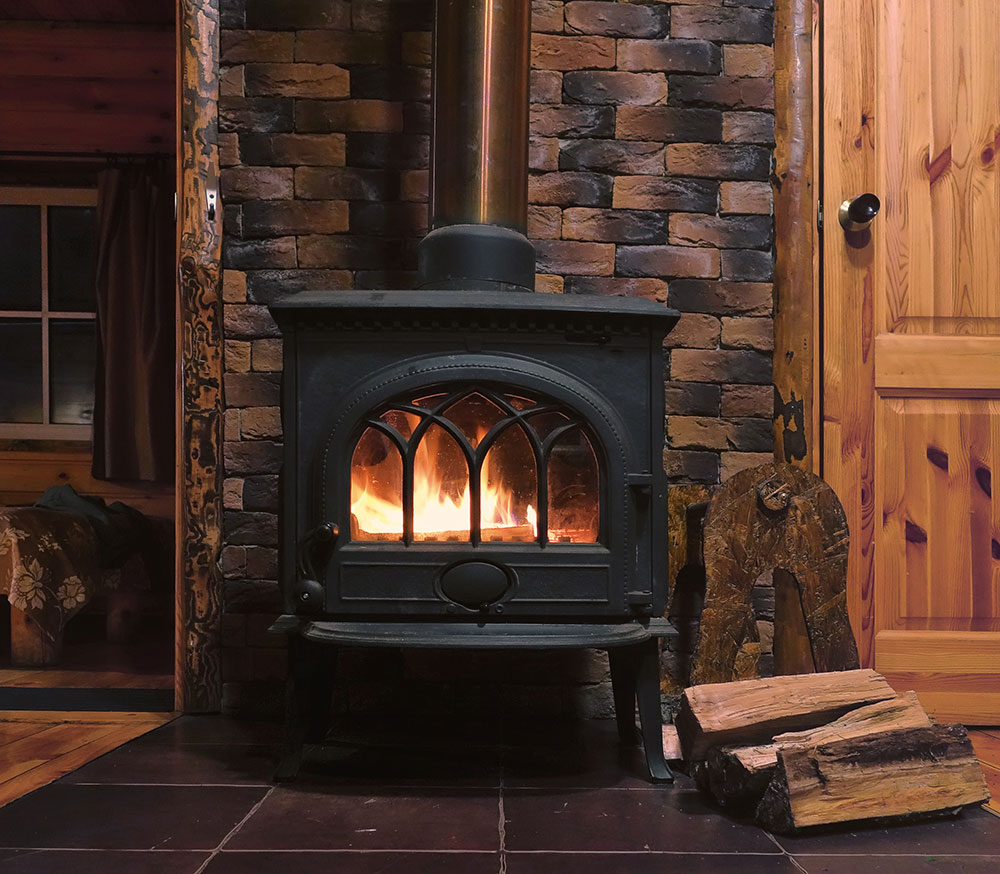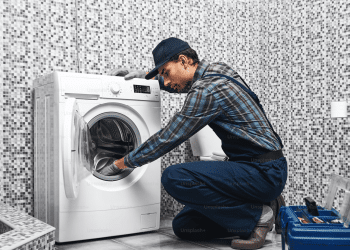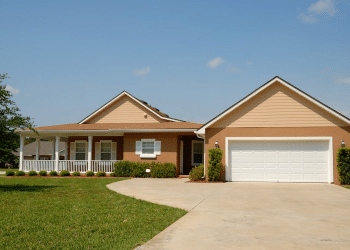Table of Contents

Those wanting to switch to an off-grid lifestyle has experienced huge growth over the past few decades, with a variety of advantages being responsible for the attraction.
Attractions include the financial savings to be made by avoiding the reliance on utilities, energy security in the event of a collapse of the grid and achieving a lifestyle more in sync with nature.
However, with most residential properties in the UK having insufficient insulation and poor efficiency, making sure your home is prepped for a renewable heat source is a crucial step to take.
A more key consideration through – which is the best off-grid heating system? What options offer the best value and can be trusted to provide consistent heating throughout the year?
In this article, we will review some of the best options for off-grid heating and analyse the advantages and disadvantages of them. Hopefully, this information will leave you well equipped to make a wise decision about your off-grid plans and ensure your property is comfortable year-round.
How efficient is your property?
The reality is that a huge amount of heat can be lost if your home isn’t adequately insulated, with a quarter of heat potentially being lost via the roof.
Therefore, it is smart to address your homes energy efficiency before you consider a renewable form of heating, especially considering that some e.g. heat pumps have a lower heat output and take longer to get hot than the likes of traditional gas boilers.
It is for this reason that the UK Government initiated the Green Homes Grant, a voucher scheme designed to encourage landlords and homeowners to improve the thermal efficiency of their properties.
The grant is in accordance with the Government’s target to become carbon neutral by the middle of the century.
The Best Off-Grid Heating Systems
After your properties efficiency has been improved, you can then start to think about the heating system that will work best for you and your home.
In broad terms, a heating system can be divided into three key parts, the fuel, the delivery method, and how the heat is produced.
The most popular heating fuels are natural gas, oil, biomass and solar. With regards to the popularity of the delivery method, water is by far the most common, which is delivered via central heating and in most cases, these are hooked up to a common type of boiler that works to provide on-demand hot water and heating.
The runner up to central heating is fast becoming underfloor heating. This system is similar to radiators, except the system is much larger and installed beneath the floor. These are usually linked to a highly efficient heat pump and so are considered much greener.
A Fair Comparison
Hundreds of thousands of people live in off-grid homes and as a result, they cannot link up to the most affordable and efficient source – natural gas. These people have other alternatives available to them, some of which are surprisingly cost-effective and relatively easy to access.
It used to be the case that off-grid heating approaches did not make practical sense from a financial perspective, but this is no longer the case in new builds or those that have been significantly improved in terms of energy efficiency.
These new greener, off-grid modes include biomass, oil, solar and heat pumps, but they each have their pros and cons, so let’s take a closer look…
Biomass Heating
Biomass is a term used to describe animal and plant mass and there is a variety of these which can be burnt as a fuel to produce heat. In residential properties, the most common form of biomass is wood pellets, which are burned by biomass boilers. Just like traditional high carbon heating systems, they can supply homes with both heating and hot water.
Advantages
Biomass systems used in residential properties are carbon neutral since the wood is a renewable fuel source.
Wood is a dependable source of heating since it can provide heating and hot water on demand with any fluctuation in output. Wood heat also has a very high heat output that is capable of heating a room much faster than the likes of electrical heaters.
As EnergyGuide.org.uk state you will also be glad to know that wood heat can replace your current combi boiler and will be eligible for the renewable heat incentive (RHI) so you may be able to benefit from cash payments quarterly over seven years.
Disadvantages
Unfortunately, biomass systems are not affordable for most since the initial installation costs can be substantial. This is mainly due to their size; they are large and require storage for the biomass fuel e.g. a wood pellet shed.
Biomass systems also get incredibly dirty and so require constant maintenance, since the fuel is large and cumbersome, there is also the labour involved in moving them from storage to the boiler.
Even though wood prices are relatively stable in comparison to the likes of gas and oil they are still not immune to increases. It is also important to verify if there are sellers in your region before investing in an expensive biomass system.
Oil Heating
In terms of off-grid heating, oil systems i.e. boilers are by far the most common used with almost one million people using them as their main heating supply.
Similar to conventional gas combi boilers, they use the oil to produce heating and hot water on demand.
Contrasting to gas boilers, they do need a large oil storage tank close to supply the boiler with a consistent flow of fuel.
Advantages
The good thing about oil is that like the more widely used gas, it can provide a high heat output that can be relied upon throughout the year. They also have very similar efficiency ratings, with modern oil boilers having 93% efficiency ratings.
The oil network is well established, so oil deliveries are very easy to secure and there are a good number of suppliers available.
Like gas boilers, the oil variety also requires very little maintenance and require servicing yearly. No additional maintenance is required.
Disadvantages
Like other high carbon fuels, oil is not a green fuel, hence why the Governments Clean Growth Strategy has taken a tough stance on the fuel, proposing a phasing out process over the next decade.
Oil prices have a history of fluctuating, which can be caused by a range of reasons and the expense of renting or purchasing an oil storage tank can be significant.
As oil has to be transported to your property often, there is always the chance of setbacks and having no fuel at all in the event of poor weather conditions or other unexpected scenarios is possible.
Heat Pumps
Unlike older heating systems, heat pumps require very minimal electricity to function and are much greener for the environment. As a result, they have received a lot of positive attention from the Government’s “Future Home Standards” plan, which underscores them as a potential replacement of gas boilers.
There are a few different types of heat pumps available, the two major ones are:
- Air Source Heat Pumps (ASHP)
- Ground Source Heat Pumps
Both types of heat pumps work on the idea of vapour compression to take in heat from outside of the home. Unlike any other off-grid heating option, they can be used for heating and hot water, as well as cooling.
Ground source heat pumps are different in that they take in heat from the ground, relying on the earth’s natural temperature. As a result, their installation is more complex and labour intensive, requiring the digging of trenches.
Heat pumps do require some electricity to run and for this reason, in off-grid properties, they are often installed together with solar.
Advantages
Heat pumps are incredibly efficient, and their operating costs are much lower when compared to conventional heating systems. In terms of efficiency, they can achieve as much as 300% as they do not generate their own heat, instead, they absorb it from the environment.
Heat pumps need minimal maintenance and require a fraction of the servicing that gas boilers need. They are also extremely quiet when running and they release no toxic carbon monoxide, so there is no risk of associated dangerous leaks.
Disadvantages
There are many benefits of heat pumps i.e. they have extremely low operating costs, but they have very expensive upfront costs, particularly when considering ground source heat pumps.
Heat pumps also require a substantial area to house, especially ground source, which requires the ground to be dug up, often demanding metres of land.
Lastly and perhaps most importantly air source heat pumps are not dependable since air temperature is inherently unstable.
Best Off-Grid Heating Options Conclusion
If you want to attain a reliable off-grid heating system that is eco-friendly and efficient, you have a variety of choices available to you. Whatever your situation, it is essential to factor in your hot water demands, as well as the amount you have to spend upfront for the initial installation.
Ultimately, when it comes to efficiency, nothing beats the heat pump with efficiency ratings exceeding 300% and above, yet the installation costs are remarkably expensive. Still, coupled with solar panels, this system is probably one of the most environmentally friendly heating systems available at present.







